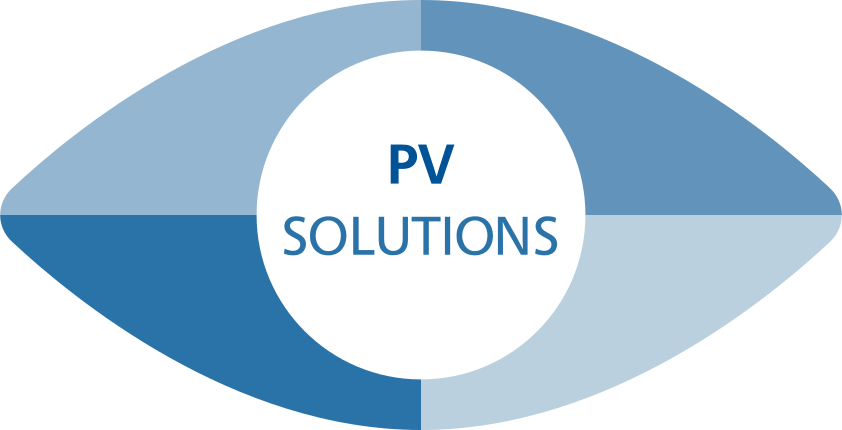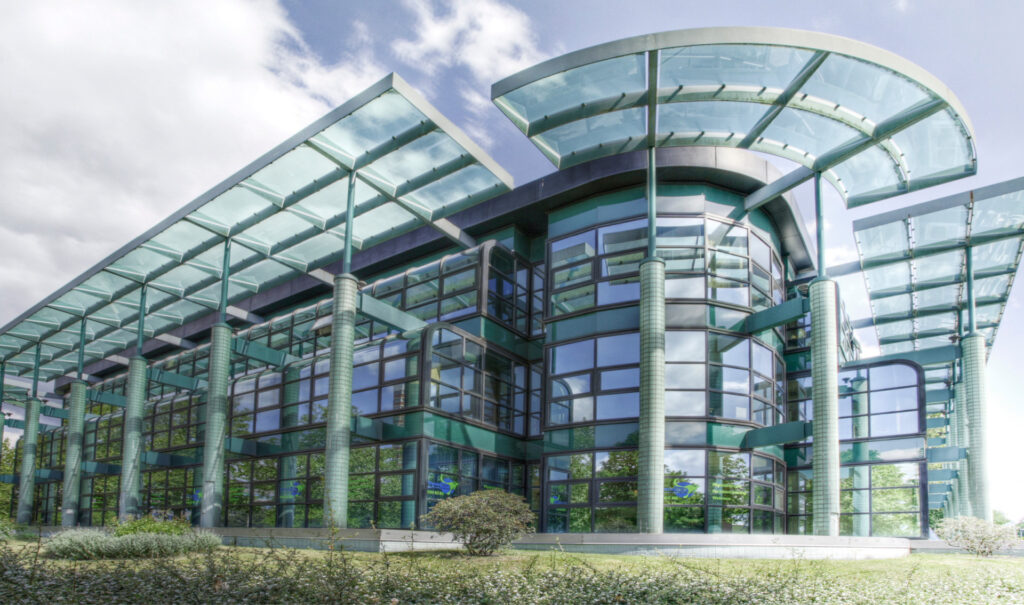Our pharmacovigilance services include
- Evaluation of the current PV status
- Carrying out literature research
- Periodic Safety Update Reports (PSURs)
- Development Safety Update Reports (DSURs)
- EU-compliant electronic reporting (XEVPRM, ICSR)
- Implementation of PV systems
- Creation of risk management plans (RMPs)
- Training, audits and more
Pharmacovigilance for authorized and marketed products
Continuous safety monitoring
The safety of medicines is our top priority. We implement robust systems for the complete recording and evaluation of adverse drug reactions (ADRs) in accordance with the requirements of Good Vigilance Practice (GVP). Our team applies advanced methods for early identification and evaluation of potential safety signals to proactively respond to potential risks. Our services include:
- Implementation and maintenance of pharmacovigilance databases
- Carrying out regular signal detection analyses
- Preparation of individual case reports (ICSRs) and follow-up reports
- Development and implementation of risk minimization measures
Regulatory safety reports
We support you in the preparation and submission of Periodic Safety Update Reports (PSURs) in accordance with the requirements of the EMA and national authorities. In addition, we develop, update and implement risk management plans (RMPs) to proactively minimize risks. Our goal is to continuously monitor and improve the safety of your products. Our specific services include
- Creation and submission of PSURs and RMPs
- Carrying out benefit-risk assessments
- Updating product information (SmPC, PIL)
- Support with the creation of red-handed letters
Official reporting obligations
Our experts ensure the timely submission of Individual Case Safety Reports (ICSRs) to the relevant authorities via EudraVigilance. We ensure that all regulatory requirements are met and prepare you optimally for inspections. We offer:
- Timely reporting of ICSRs to authorities and EudraVigilance
- Preparation and support for inspections
- Creation and maintenance of standard operating procedures (SOPs)
Risk communication and management
Effective communication is crucial for drug safety. We develop and implement strategies to communicate safety information to healthcare professionals and patients. In addition, we implement and monitor risk minimization measures, including the creation of educational materials for healthcare professionals and patients. Our services include:
- Development of risk communication strategies
- Implementation and monitoring of risk minimization measures
- Conducting effectiveness studies for risk minimization measures
Quality management
Our robust quality management system in accordance with GVP Module I ensures the highest standards. We carry out regular internal audits and manage Corrective and Preventive Actions (CAPAs) for continuous system improvement. Our services include
- Implementation and maintenance of quality management systems
- Carrying out internal audits and gap analyses
- Management of CAPAs and improvement measures
PSMF creation and maintenance
The Pharmacovigilance System Master File (PSMF) is a central document. We continuously create and update your PSMF to provide a detailed description of your PV system and to be prepared for inspections. We offer:
- Creation and continuous updating of the PSMF
- Regular review and adaptation to regulatory changes
- Support with the integration of new products into the PSMF
Pharmacovigilance for clinical trials
Comprehensive safety monitoring
For clinical trials, we implement robust systems to seamlessly monitor adverse events throughout the duration of the trial. We develop and implement study-specific risk management plans to proactively identify and minimize potential safety risks. Our services include:
- Development and implementation of safety monitoring plans
- Creation and maintenance of safety databases for clinical studies
- Carrying out risk assessments and risk management
- Support in the creation of test plans and declarations of consent
Efficient SAE and SUSAR management
Our team ensures the timely recording, evaluation and documentation of Serious Adverse Events (SAEs) in accordance with the GCP Regulation. We ensure the timely reporting of Suspected Unexpected Serious Adverse Reactions (SUSARs) to authorities and ethics committees within the prescribed deadlines. We offer:
- 24/7 on-call service for SAE messages
- Medical evaluation and follow-up of SAEs
- Timely SUSAR notifications to authorities and ethics committees
- Preparation of safety reports for investigators and sponsors
Preparation of regulatory safety reports
We prepare comprehensive Development Safety Update Reports (DSURs) according to the ICH E2F guideline and conduct continuous benefit-risk evaluations to ensure the safety of study participants. Our services include:
- Creation and submission of DSURs
- Carrying out benefit-risk analyses for investigational medicinal products
- Support in the preparation of annual reports for ethics committees
- Updating inspector information based on safety data
Contact us for an individual consultation on how we can best support your specific requirements. Benefit from our expertise and concentrate on your core competencies in drug development and marketing.
We assume your pharmacovigilance obligations for drug safety as the marketing authorization holder.
In 2012, the PV legislation was formalized and implemented by the EU to regulate the detection, management and prevention of adverse drug reactions in patients. In line with these changes and in order to comply with and implement the obligations of the PV, organizations authorized to manufacture a medicinal product for human use now require the services of a Qualified Person for Pharmacovigilance (QPPV) and, where applicable, a Stepwise Plan Representative. Mediconomics has the expertise and authorization from the European Medicines Agency (EMA) to provide your company with tailored pharmacovigilance solutions, saving you valuable time and money.
Drug safety through constant monitoring
The word pharmacovigilance (PV) or drug safety is composed of the Greek word pharmakon, which means “remedy” or “poison” and the Latin vigilantia “care, vigilance”.
Continuous and systematic monitoring of the safety of medicinal products for humans and animals results in risk minimization, which is to be achieved by assessing and understanding adverse effects and taking appropriate measures.
Compliance with legal requirements
Despite the well-founded clinical development of a medicinal product, the monitoring and documentation of adverse events is indispensable and legally binding even after market approval. Due to the limited number of subjects in clinical trials, rare side effects and interactions can often only be detected after market launch.
Patient protection is the top priority - vigilance system
Immediate reporting is mandatory at the slightest suspicion of an adverse reaction, even if a causal relationship between the medicinal product and the effect cannot be established beyond doubt. Serious rare effects are of particular interest for the overall assessment of a medicinal product. Continuous medical-scientific development can lead to new findings on safety even years after authorization. As a result, the approval status of a long-established medicinal product may have to be adapted to current scientific knowledge and, if necessary, risks and their mitigation may have to be pointed out.
STATEMENT OF THE DIFFERENCE
FROM EU-QPPV VS. STEP-BY-STEP PLAN REPRESENTATIVE ACC. § 63A AMG
| EU-QPPV | Graduated plan officer (AMG) | |
|---|---|---|
| Residency | Member State of the EU or EEA | Member State of the EU |
| Area of responsibility | Medical defects | Medical and pharmaceutical defects |
| Liability | Authorization holder | Personal |
| Penalties | No | Yes |
| Representation | Yes, replacement procedure and replacement person must be available | Desired |
| Contact/Report | Acts as a central contact person for competent authorities of the EU member states and for inspections - 24/7 availability required | Obligation to report pharmaceutical risks and report further information at the request of the competent federal authority at |
| PV system | Establishment and maintenance | Establishment and maintenance as well as Collection and evaluation of drug risks and coordination of necessary measures |
| PSMF | Ensure that the information contained in the PSMF is an accurate and up-to-date representation of the PV system | No |
GENERAL OVERSIGHT
- Provision of EU-QPPV and/or Deputy
- PSMF creation and maintenance
- Support with PV integration
Operational support
- Development of SOPs
- Conduct of PV trainings
- Literature research
- Medical assessment of ICSRs

Drug safety
- EudraVigilance registration
- Generation of narratives for SAEs and SUSARs
- Generation of Risk Management Plans
- Safety reports
PV AUDITS
- Conduct of audits (vendors/internal)
- Support during inspections/audits
And what can we do for you?

Dr. (MD) Uwe Albrecht,
FIBMS, FFPM (Dis.), FICR, CSci
CEO

Headquarters
Hanover
FAQ – frequently asked questions
The most important tasks in practice are the continuous monitoring of the risks in relation to the benefits of a medicinal product after authorization and the assessment of incoming suspected cases of adverse reactions after authorization and after market launch.
PV is used for risk management relating to the use of medicinal products, the detection of production errors or defective packaging, the prevention of therapeutic errors and the communication of information on medicinal products. Furthermore, the reporting of adverse drug reactions to the competent authorities is an important element of PV.
In the field of medical devices, there is also the concept of vigilance - formalized by the MDR - which deals with product safety from the start of marketing.